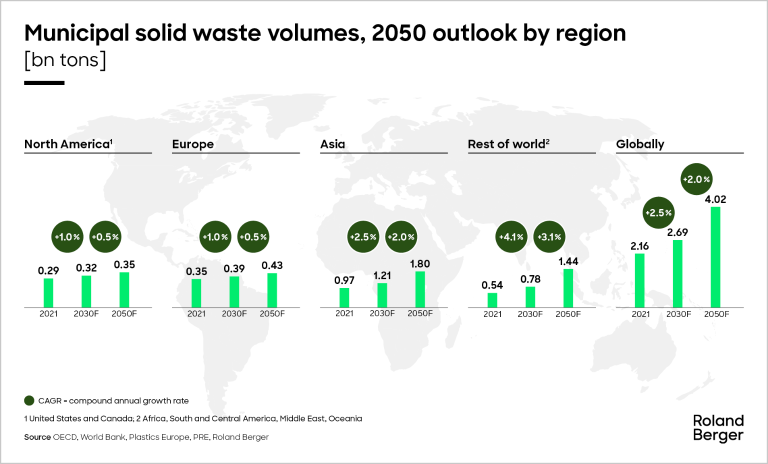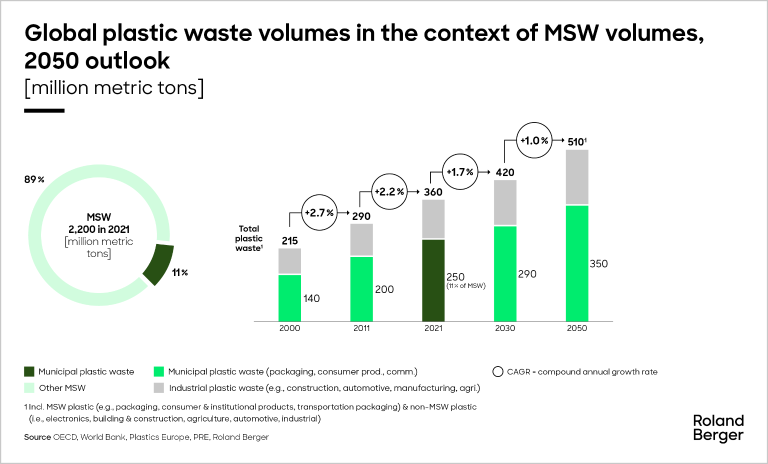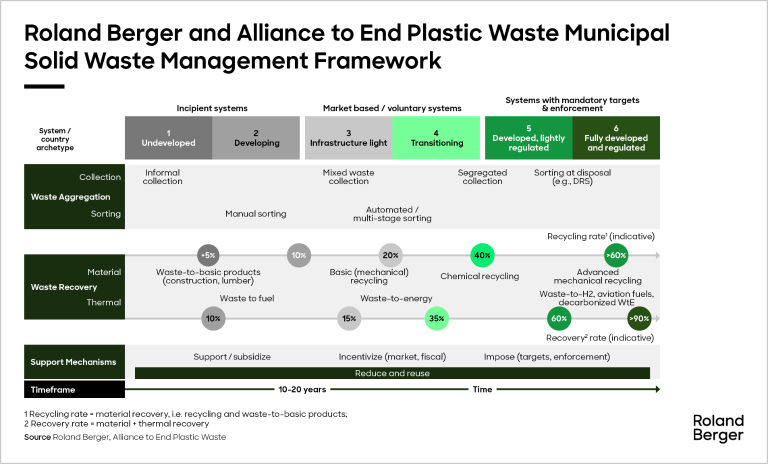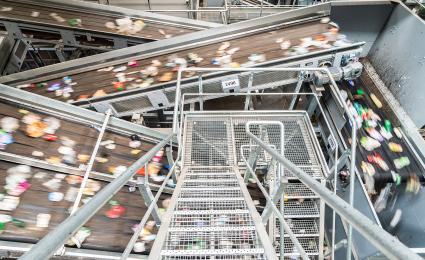Explore our comprehensive report on transforming waste management globally: Uncover how shifting from landfill dependency to circular economy models can unlock economic revitalization and sustainability. Dive into innovative strategies for worldwide collaboration in our quest for environmental and economic harmony. #SustainableFuture #EconomicRevitalization
Plastic waste (r)evolution – Dynamic sector with growth opportunities
![{[downloads[language].preview]}](https://www.rolandberger.com/publications/publication_image/24_2246_REP_Global_plastic_waste_outlook_in_MSW_context_download_preview.jpg)
Explore the growing challenges and promising solutions in global waste management. Discover how population growth, consumption patterns, and regulatory initiatives shape the future of municipal solid waste. From regional disparities to the imperative of effective waste management, uncover insights into recycling innovations and investment opportunities. Join the journey towards a cleaner, more sustainable future.











